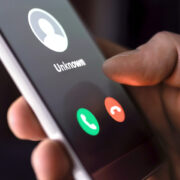For illegal robocallers, the goal isn’t always getting you to answer. Sometimes, it’s getting you to call back.
Every so often, your phone may ring once and then stop. If that happens to you, and you do not recognize the number, do not return the call. You may be the target of a “one-ring” phone scam.
One-ring calls may appear to be from phone numbers somewhere in the United States, including three initial digits that resemble U.S. area codes. But savvy scammers often use international numbers from regions that also begin with three-digit codes – for example, “232” goes to Sierra Leone and “809” goes to the Dominican Republic. Scammers may also use spoofing techniques to further mask the number in your caller ID display.
If you call back, you risk being connected to a phone number outside the U.S. As a result, you may wind up being charged a fee for connecting, along with significant per-minute fees for as long as they can keep you on the phone. These charges may show up on your bill as premium services, international calling, or toll-calling.
Variations of this scam rely on phony voice-mail messages urging you to call a number with an unfamiliar area code to “schedule a delivery” or to notify you about a “sick” relative.
How to avoid this scam
-
- Don’t answer or return any calls from numbers you don’t recognize.
- Before calling unfamiliar numbers, check to see if the area code is international.
- If you do not make international calls, ask your phone company to block outgoing international calls on your line.
- Always be cautious, even if a number appears authentic.
Filing a complaint with the FCC
If you are billed for a call you made as a result of this scam, first try to resolve the matter with your telephone company. If you are unable to resolve it directly, you can file a complaint with the FCC at no cost.
Filing a complaint with the Federal Trade Commission
If you feel that you are a victim of an international phone scam, you can file a complaint with the FTC. (Information via www.fcc.gov)





